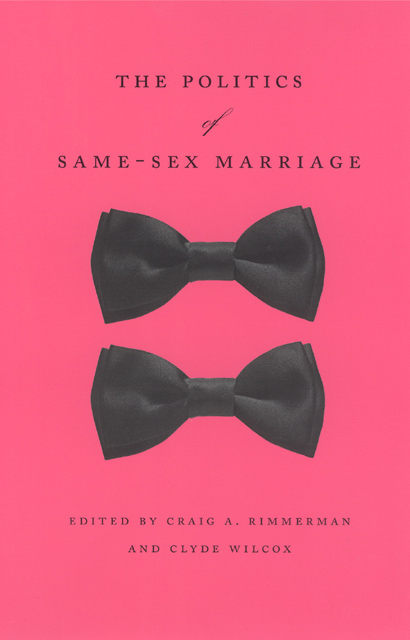Proposition 8 goes to court

The California Supreme Court is scheduled to hear arguments today on Proposition 8, the successful ballot measure that amended the state’s constitution to ban gay marriage. The Los Angeles Times reports that supporters of gay marriage “seek to overturn Proposition 8 by saying it isn’t a constitutional amendment at all, but a constitutional revision that should have been required to go through a much more rigorous process to become law.”
Whatever the court decides, it seems safe to predict that this is only one of many battles to come between two sides of an issue that—as the authors of The Politics of Same-Sex Marriage point out—has waxed and waned in the public sphere since the passing of the 1996 federal Defense of Marriage Act. In fact, same-sex couples filed suit Tuesday against the federal government over portions of the act. The suit is expected to take several years to make its way through the federal court system—which leaves a lot of time for reading up on the issue in the meantime.
The Politics of Same-Sex Marriage, a great place to start, brings together an esteemed list of scholars to explore all facets of this heated issue, including the ideologies and strategies on both sides of the argument, the public’s response, the use of the issue in political campaigns, and how same-sex marriage fits into the broad context of policy cycles and windows of political opportunity.
And Same Sex, Different Politics brings an illuminating comparative approach to gay rights issues. It’s the first book to compare results across struggles over laws governing military service, homosexual conduct, adoption, marriage and partner recognition, hate crimes, and civil rights. In each area, Gary Mucciaroni found, the gay rights movement’s achievements depended both on Americans’ perceptions of its demands and on the political venue in which the conflict plays out. Adoption policy, for example, generally takes shape in a decentralized system of courts that enables couples to target sympathetic judges, while fights for gay marriage generally culminate in legislation or ballot referenda—Proposition 8 comes to mind—against which it is easier to mount opposition.